Jane Duffus Photo by Neil Phillips Loved and loathed in equal measure, Sarah Records released exactly one hundred singles in its eight-year lifetime. An antidote to much else of what was going on in the brash musical and cultural landscape of the late 1980s and early 1990s, it was founded in Bristol by fanzine writers Matt Haynes and Clare Wadd, and has become possibly the most revered and fondly remembered indie label of that era. Haynes and Wadd ran their label on Socialist values and largely through word-of-mouth, spending hours each day writing handwritten letters to fans and often putting them and their fans up in their tiny Bristol flat for days and weeks at a time. Sarah specialised in the 7 inch single at a time when the musical market was dominated by CDs and 12 inch remixes. Their acts – bands such as Heavenly, The Field Mice, The Orchids and Blueboy – were often dismissed as being too soft and twee and amateurish, but that was much of their appeal to fans. They had a lo-fi, DIY approachability and humanity that other acts lacked. By the time Sarah Records in 1995, they were selling thousands of copies of each new single as well as their regular compilations and LPs by their bands. Jane Duffus became a fan of Sarah Records at the age of fourteen when she first discovered it in 1990 through her older brother. Now she was written a book about it, the vast, 460-page ‘These Things Happen: The Sarah Records Story’. Combining her often very funny memories of it and the records she bought and the gigs she attended, through a series of headings on matters such as fanzine culture, the power of the press, radio, record shops and going out, she provides a giant-sized insight into Sarah Records and why it was so important. Pennyblackmusic spoke to Jane Duffus about ‘These Things Happen’. PB: How long did it take you to write ‘These Things Happen’? JANE DUFFUS: It took probably about two years alongside other things because, as you can imagine, you don’t really earn much money writing a book about Sarah Records. You do it more as a label of love and a glorified hobby, so i had to have a couple of day jobs alongside it Most of that time was spent doing interviews and then transcribing them and turning them into the book. I probably went through the whole thing about five or six times, partly because it is about 200,000 words now and a big book, but it went to about 250,000 at one point, and so we had to trim it down. PB: When you started out, did you mean to publish a book as vast as you have done? JD: No (Laughs). When I started out, I didn’t intend to write a book about Sarah Records at all. I intended to write a book about being a fanzine writer in the country in the early 1990s,, which had a small chapter on Sarah Records in it, but then as I kept writing the book, the chapter on Sarah Records became bigger and bigger. It pushed everything out the way and then became the book that you have now seen. PB: Do you still plan to do the book on being a fanzine writer? JD: I would love to, but I don’t know who would want to read it beyond about ten people. There is a section in the ‘Fanzine’ chapter which has a section on ‘Bedroom Culture’ which is what I am really interested in, the space of bedrooms as a place for teenagers, but I am bot sure what the mass market of that might be, although I do have a whole chapter written about it (Laughs). PB: Why did you decide to a\void a chronological approach in 'These Things Happen'? JD: I just felt that it would get too bottlenecked. I did think of lots of different ways of trying to structure the book before I sat down and wrote it, and obviously the chronological approach was one, but I just thought that it would get really messy, because obviously lots and lots of things were happening at the same time with all the different bands. In the summer of 1990, you would have had ten different bands in the studio or out on tour, and the whole book would have just become very repetitive with a catalogue of bands all doing the same thing at once, so I decided that it would be better to group them into types of activity, such as being on tour or being in the studio, designing the sleeves or whatever, and then put all those anecdotes for each of them in one place. PB: Did you choose to do it in this alternative way as well because there had already been Michael White’s book ‘Popkiss’ and a documentary film about Sarah Records? You perhaps needed a different take on it. JD: I think the film is a separate category on its own because film is a very different medium to a book. In a film you have got lots of different avenues available because you can play the music and you can show the people and the places, so it is a very different kind of thing. In Michael’s book, he writes more about the music of the bands, whereas I haven’t got a clue how to write about music (Laughs). I left that to him. For anyone who wants to know more about the music, I would refer them to Michael’s very good book, but I focused more on the people and the silliness and the quirkiness of it. I am really interested in the minutia of people’s lives, whether it is people in indie bands or people in general. I liked to focus on that. When I was interviewing Clare and Matt, I was interested to know how they passed their day. There is a section in the book which provides a very generalised, average day in the life of Sarah Records, and it starts with them opening the post and going to the shops and wrapping up the stuff that has to go in the post and sitting down in the evening, and goes into details as well about where they bought their tea and what they had for supper. I was really interested in that kind of stuff, and I think that is the kind of stuff you want to know, and they sent me some photos with the real detail of their flat. There is one in the book and it shows their kitchen/living room and it is also their office, and I just think that there is so much detail in that picture. That is the kind of stuff that I like, and I figured that if I like that then other Sarah fans probably will as well. PB: What was the initial appeal of Sarah Records? You discovered it through your big brother. JD: My big brother introduced me to Talulah Gosh and that was a gateway drug into Amelia Fletcher and then Heavenly, and Heavenly were putting out records on this label called Sarah, and it kind of spiraled out that way, so it was Talulah Gosh to Amelia and then Heavenly to all the other bands on Sarah that I pilfered from his collection. This was in about 1992 I think, and I started then writing to Clare and Matt and building up my own Sarah Records collection. PB: Matt and Clare were based in Bristol. Was part of the appeal to you that Bristol was not that far away from where you were brought up? JD: That was just a coincidence, but it was certainly a nice factor. I was brought up in a little village about and hour and a half’s drive from Bristol, and I would say that Bristol was the nearest place if you wanted to go to decent record shops. If you wanted to go to gigs, then Bristol was the nearest place.. where stuff was going to happen, so I used to pop up to Bristol once a month or so and sometimes I would meet up with Matt. Matt was my contact at Sarah for some reason. He would write my letters. I think Matt and Clare divided their letter-writing into two piles, and it was Matt who wrote to me, so it was Matt that I built up a connection with, and we would go for a walk or meet up in Revolver Records, and it didn’t really strike me as odd at the time, but it does in hindsight that a 15 year old/16 year old kid is meeting up with this guy who is running a record label, and he is perfectly prepared to take a couple of hours to go for a walk and discuss the merits of Even As We Speak verses the Field Mice (Laughs). When you’re a kid you just accept stuff as it happens, but when you’re a grown up you look back and think. “That was quite unusual,”.and I think that was part of the appeal. It was the accessibility of Clare and Matt and the fact that they would write these handwritten letters, that they seemed like friends and contemporaries. They were very approachable. They certainly weren’t and they still aren’t arrogant, show off people. Matt said that he liked running the merch stall at gigs. He liked hiding behind the merch stall because it gave him a reason to be there, which is extraordinary, because imagine being one of two people who run a record label thinking that he doesn’t have a reason to be at one of his band’s gigs, but if he is running the merch stall then he feels that he has got a reason to be there, and I think that tells you a lot about how unassuming they are. PB: It has become the subject of some debate but do you think it was always Matt and Clare’s intention to stop when they had released 100 singles or was that down to circumstance? JD: I don’t think that when they launched with The Sea Urchins' 'Pristine Christine' single they thought, “Right, in eight years we are going to stop when we get to one hundred.” I don’t think that at all. I think that by the time they put out the Sea Urchins they thought, “We will put out a couple of seven inches and see how it goes.” They sold really well and they were really well received by John Peel and Janice Long and even by the music press in the earliest stages, and it just kept on growing and growing and more and more bands started contacting them, and then they put out a few albums and compilations and it kept getting bigger and bigger. Clare and Matt both say that by the time they got to Sarah 50 that they decided they wanted to do something different, so they put out the board game, I don’t think that they were in any mood to stop then, but I think at around about the time Sarah 100 was approaching they were thinking, “We have been doing this for nearly eight years.” They had also –and I think that it was important to them – had remained a similar age to the bands,. Obviously Clare and Matt were, however, getting older, and the original bands had moved on and new bands were coming in, and there started to be a bigger and bigger age gap between them and the bands which they didn’t really want. They wanted to feel like they were contemporaries and of the same level, but I think as well if you start doing something when you are 19 which Clare was, I think if you do something for eight years you are going to be a little bit tired of it. She was still only 27 by that point. They were getting ready to leave Bristol at that point. They both moved up to London shortly afterwards. I think that they were getting ready mentally to do something different. I think that it had just run its course. PB: Why do you think Matt’s follow-up label Shinkansen was less well received and acknowledged despite featuring many of the same acts? JD: I have no idea but I am partially responsible for that. I have never bought a Shinkansen record in my life. I can’t speak for anyone else,,. but my reasoning is that around about that time that Sarah ended which was August 1995 I was getting ready to move off to university. I was moving into a different circle of friends and my interests were going in different directions. And that is probably true for a lot of people, I guess. You filter off into different things. It is strange because a lot of the bands and the production values and the ethics were the same. PB: Sarah Records and its acts received lots of really notoriously bad press. Why do you think that they were treated so badly by much of the music press? JD: In the first year or two the music press was actually pretty decent to Sarah Records. They got Single of the Week a few times, but most of tthose were in the first quarter of Sarah’s life,. It is an indication that the music press was much more open-minded and honest then, and then things just started to change. The culture started to change from around 1990 onwards. The music press was moving towards what became Britpop, and a very laddish, male-orientated culture. A different form of journalists like David Quantick and Steven Wells were starting to come into the music press,, and it is no coincidence but things like ‘Loaded’ and ‘FHM’ were starting to dominate in the media. Surgically enhanced women in their underwear was becoming a thing to be idolised and admired, and certainly some fans of that were writing for the music press,. You are never going to get a video with a woman in her underpants for a video by the Field Mice,, whereas if you go and watch a Guns ‘N Roses video you might well see some girl not wearing very much. Bands like Guns ‘N Roses were huge at the time, and Sarah was the antithesis of it and they were an easy target. I think also a big problem was Sarah and Matt didn’t play the game. Clare and Matt on the whole didn’t buy a lot of advertising in the music press. They didn’t have the big budget to take bands out to America on tour. They didn’t have the money or the interest to court them in that way, but they didn't need to. They were a success without the music press. They had the support of John Peel and the Evening Sessions. They were selling records in Japan and the States. It didn’t matter that the music press was writing these really awful reviews because if you were a fan of Secret Shine or Gentle Despite you were going to buy the records regardless of what anyone in the ‘NME’ said about them. PB: The book has got dozens of rare and not seen before photos. How easy was it to source these? JD: Well, this is my sixth book, and this is the first time that I have ever done photos research, and it will also be the last time (Laughs). I have great respect now for professional photo researchers. It is very time-consuming and difficult. People were very, very generous. I was quite vocal on various Sarah fan groups that I was writing the book, and lots of people shared their own photos and memories,. We are talking about a very different time. People had on the whole low quality cameras. They didn’t have fancy smartphones with high pixel definition and zooms, and all the photos are quite grainy and have the back of someone’s head in which is what it is like when you see a band. You can’t quite see what you want to see. I have around a thousand photographs on a memory stick and about 250 made it into the book, but it was really hard to whittle it down , really tough and I wouldn’t want to do it again. PB: Last question. This will be like choosing your favourite child but what is your favourite Sarah record? JD: I give a different answer every time someone asks me this. I think that it depends when you ask me. If you had asked me in the ‘90s when I was an actual teenage Sarah fan, I would have said Heavenly in a heartbeat. They were my gateway drug into this whole scene and I remain a big fan. I now know Rob and Amelia and Pete and Cathy quite well and they are all absolutely lovely people. I went to see them in the London shows when they reformed. During the process of writing and researching the book I listened to so much Sarah music, and now I would say the Harvest Ministers, and I cant quite choose between ‘You Do My World the World of Good’ or ‘Sic O’ Clock in Rosary’. I love both of those in equal measures. PB: Thank you.
Band Links:-
https://www.janeduffus.comhttps://twitter.com/bristol_jane
http://sarahrecords.org.uk/
Play in YouTube:-
Picture Gallery:-
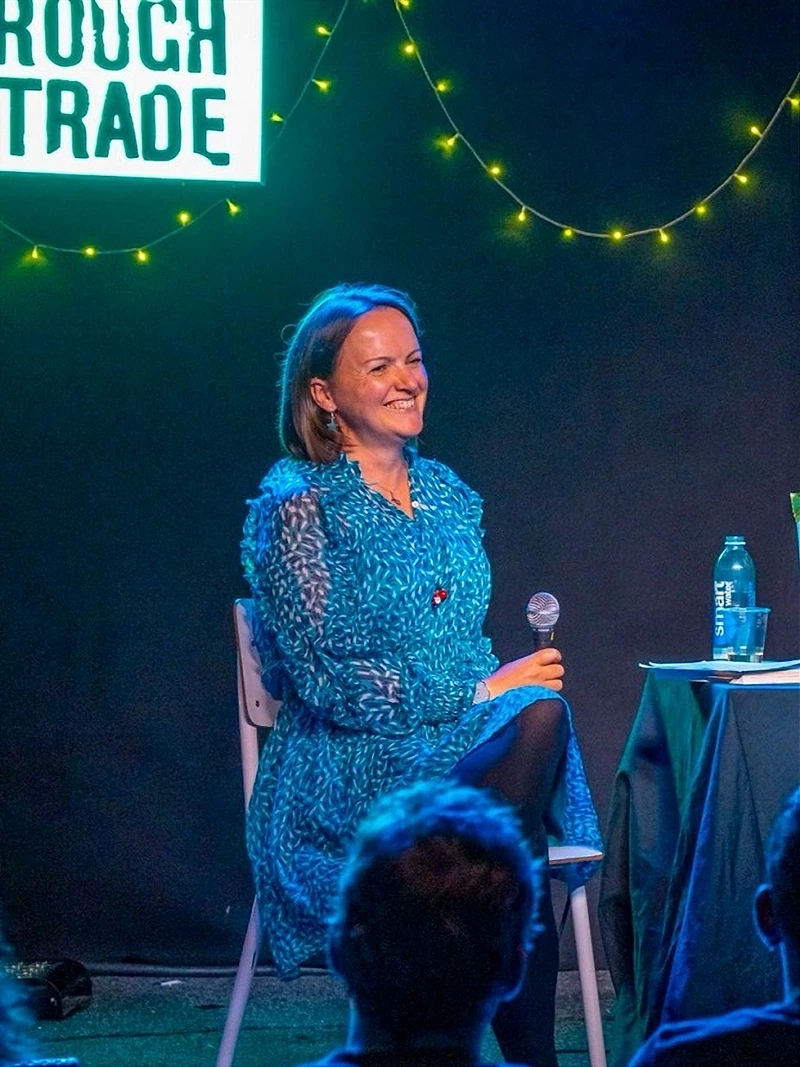
Jane Duffus Photo by Neil Phillips
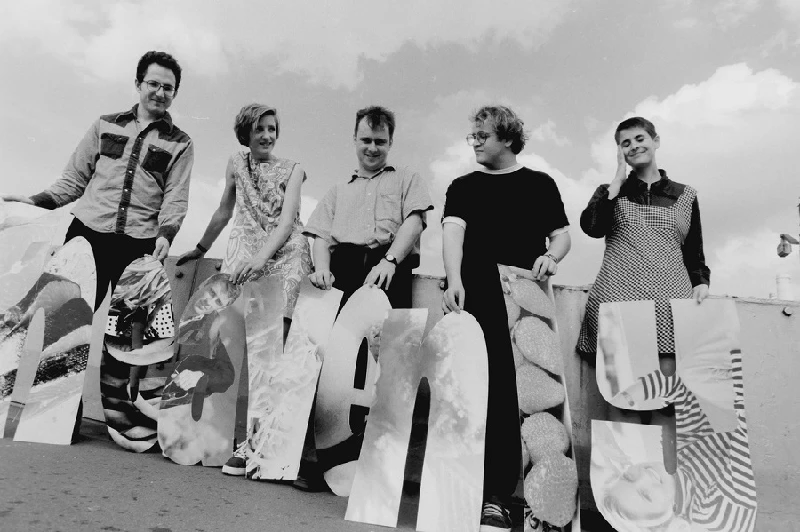
Heavenly Photo by Alison Wonderland
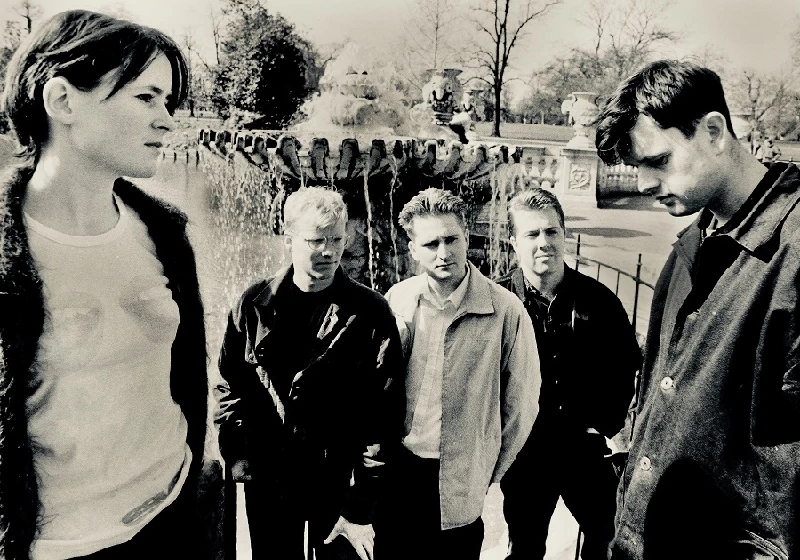
Blueboy Photo by Alison Wonderland
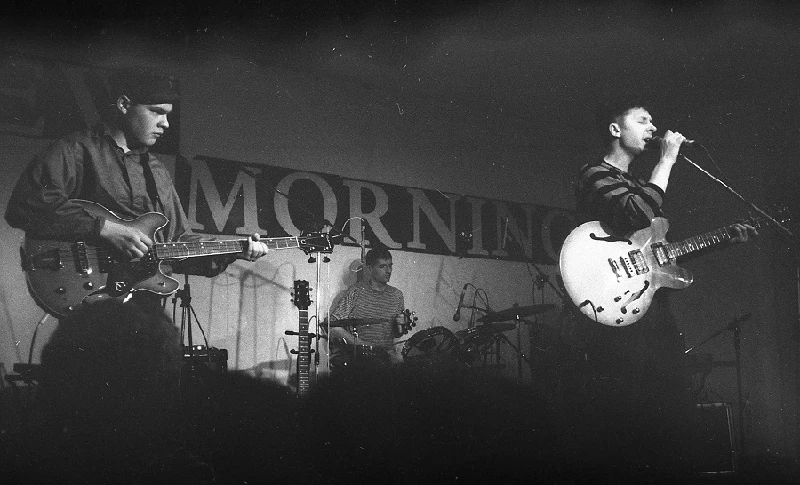
St Christopher Photo by Emmanuel Foricheer
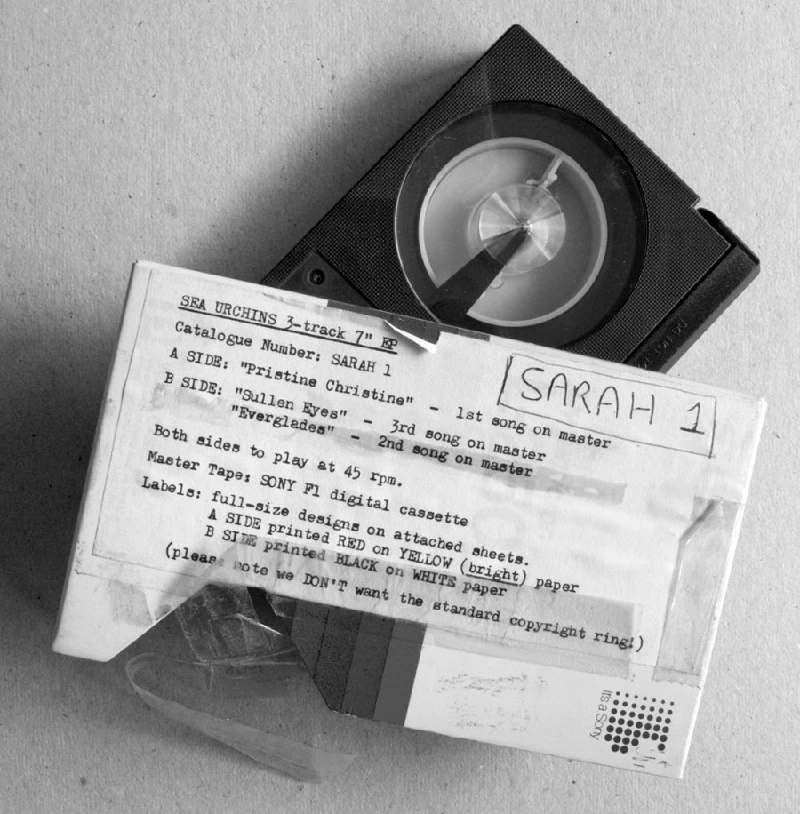
Sea Urchins 'Pristine Christine' Master
intro
Writer Jane Duffus speaks to John Clarkson about her new book on Sarah Records, 'These Things Happen'.
most viewed articles
current edition
Screamin' Cheetah Wheelies - Sala Apolo, Barcelona, 29/11/2023 and La Paqui, Madrid, 30/11/2023Anthony Phillips - Interview
Difford and Tilbrook - Difford and Tilbrook
Rain Parade - Interview
Oldfield Youth Club - Interview
Autumn 1904 - Interview
Shaw's Trailer Park - Interview
Cafe No. 9, Sheffield and Grass Roots Venues - Comment
Pete Berwick - ‘Too Wild to Tame’: The story of the Boyzz:
Chris Hludzik - Vinyl Stories
previous editions
Microdisney - The Clock Comes Down the StairsHeavenly - P.U.N.K. Girl EP
World Party - Interview
Michael Lindsay Hogg - Interview
Ain't That Always The Way - Alan Horne After The Sound of Young Scotland 2
Joy Division - The Image That Made Me Weep
Dwina Gibb - Interview
World Party - Interview with Karl Wallinger
Barrie Barlow - Interview
Joy Division - The Image That Made Me Weep
most viewed reviews
current edition
Marika Hackman - Big SighSerious Sam Barrett - A Drop of the Morning Dew
Rod Stewart and Jools Holland - Swing Fever
Loves - True Love: The Most of The Loves
Ian M Bailey - We Live in Strange Times
Paul McCartney and Wings - Band on the Run
Autumn 1904 - Tales of Innocence
Roberta Flack - Lost Takes
Banter - Heroes
Posey Hill - No Clear Place to Fall
Pennyblackmusic Regular Contributors
Adrian Janes
Amanda J. Window
Andrew Twambley
Anthony Dhanendran
Benjamin Howarth
Cila Warncke
Daniel Cressey
Darren Aston
Dastardly
Dave Goodwin
Denzil Watson
Dominic B. Simpson
Eoghan Lyng
Fiona Hutchings
Harry Sherriff
Helen Tipping
Jamie Rowland
John Clarkson
Julie Cruickshank
Kimberly Bright
Lisa Torem
Maarten Schiethart